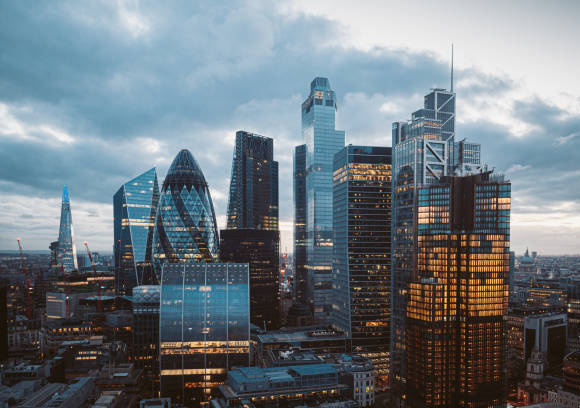How Long Until London Reaches Net Zero?
You may be surprised to learn that London has the lowest carbon emissions per person for any region in the UK, thanks mainly to public transport and high population density. Furthermore, even though the rest of the UK aims to be carbon neutral by 2050, London is aiming to reach the same target sooner and becoming “net zero” by 2030. But just how achievable is this? Let’s look at who is responsible for this target and the actions being put into place to achieve it.
Who’s behind setting the goal?
Realistically, there will always be some carbon emissions. However, if certain measures are taken to offset carbon emissions, such a planting trees, the total effect in combination can amount to zero – i.e. net zero carbon. London mayor Sadiq Khan agrees that the target will not be easy to achieve and that there will challenges along the way, however this hasn’t stopped him bringing the national goal from 2050 down to 2030.
What changes have been made to make this work?
With changes in attitudes to the looming climate crisis, people are now beginning to understand the necessity of taking more than just tokenistic action to halt and reverse environmental damage. One of the biggest ways to reduce carbon emissions is by eliminating the dietary consumption of animal products.
In the past, many would have balked at suggesting anyone change their diets, but it seems that this last bastion of personal freedom will soon be forced to change with the times. Vegan and vegetarian diets are simply better for the environment, costing fewer resources and producing less waste, including carbon dioxide. Currently, there is a reluctance to create policy that explicitly promotes carbon neutral diets. Although the vegetarian and vegan food market is booming, the mayor’s explicit environmental strategy makes no special claims to diet just yet.
As for waste, London currently produces 7 million tonnes of waste a year, and only 41% of it is recycled. The trouble is that every borough has its own jurisdiction outside of the mayor’s control. Twenty of the 33 local authorities are being independently assessed by the mayor, but this could result in a confusing mess of recycling and waste laws. The city is currently aiming for zero biodegradable material going to landfill by 2026, but not everyone is optimistic.
The Committee on Climate change is also unimpressed with the state of London homes, claiming they’re “unfit for the future.” So far, more than 35 000 homes have been retrofitted with better boilers, solar panels, or improved insultation – but this is far from being enough. With 30% of the capital’s emissions coming from gas to heat homes, it becomes a question of decarbonizing the entire energy grid and switching to renewable energy sources.
Finally, a massive contributor to carbon emissions is transport, with the mayor’s Healthy Streets initiative aiming to decarbonize vehicles as well as remove cars from the roads to make them more accessible to cyclists and pedestrians. Whether all this and more can be achieved by mayoral clout alone, and in so short a space of time, is anyone’s call.
Is it really achievable?
The conversation around climate change is forcing some hard questions. No longer are easy and small-scale changes at the individual level enough – today, corporations and governments are expected to pull their weight and make large-scale modifications that create drastic and lasting change.
Many have expressed cynicism at London’s lofty goals, calling its tentative policies too little done too late. Though there’s no doubt that something needs to be done, criticism is launched squarely at the feasibility of the proposed solutions: will these efforts be enough?
What can you do to play your part?
According to EPC For You London, individual householders and small business can certainly make a difference, no matter the virtues and drawbacks of regional policies. Get an energy survey for your company to ensure you’re doing what you can to reduce your emissions, and ask for some recommendations to improve your efficiency. Assess the efficiency of your appliances or consider changing energy suppliers to a greener option.
When it comes to climate change and creating a greener, more sustainable future for us all, the question is not whether we do it, but how and when – and the sooner the better. Sadiq Kahn certainly has his work cut out for him, and there’s no predicting how effective his environmental plan will be come 2030, but this shouldn’t stop the ordinary citizen finding ways to do their part.



